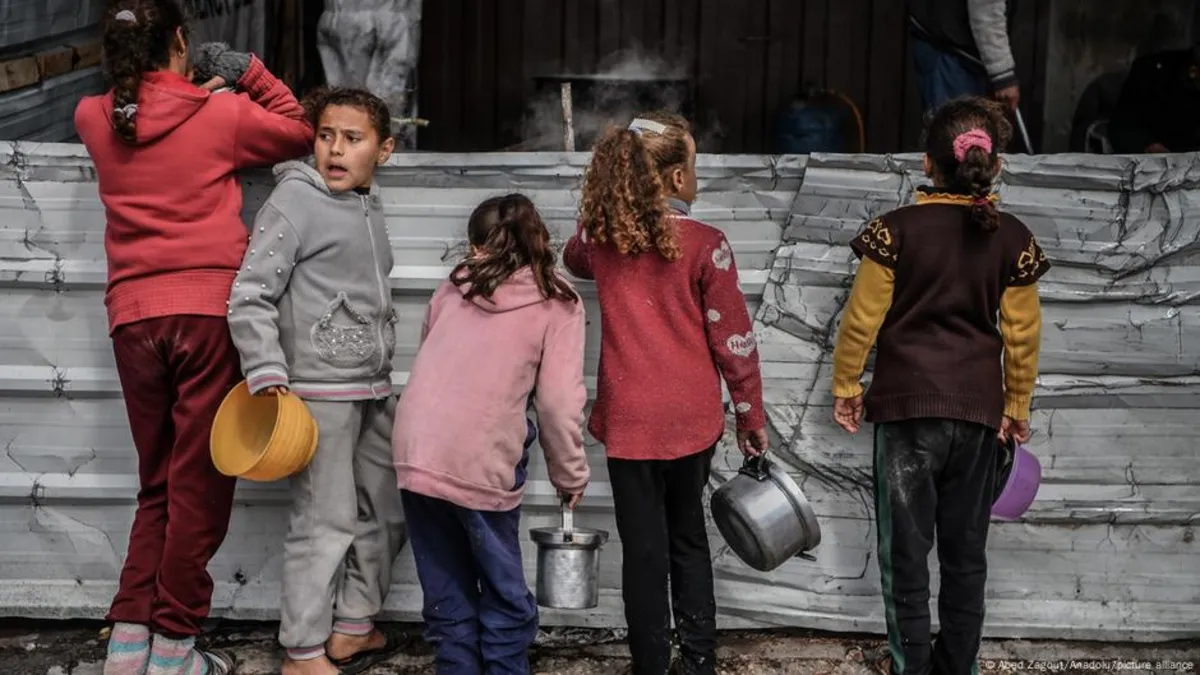
The Gaza Humanitarian Foundation (GHF) recently announced the initiation of large-scale aid operations in Gaza, but the organization has come under scrutiny following its claims. This week, GHF reported that it distributed approximately 8,000 food boxes, which translates to around 462,000 meals. This distribution is particularly significant as it follows an almost three-month blockade imposed by Israel on the Gaza Strip.
According to GHF, the volume of people present at the SDS distribution center was overwhelming, prompting the team to step back and allow a limited number of Gazans to safely collect aid. Major news agencies like AFP and Reuters highlighted that thousands of individuals surged toward the food distribution site located in Rafah.
However, the situation escalated when Israeli military forces reportedly fired warning shots near the aid distribution center. The Israeli news portal ynet indicated that shots were fired from Israeli helicopters, while the Associated Press noted that the sound of tank and gunfire was audible as large crowds attempted to access the aid center. Fortunately, there were initially no reports of injuries from the incident.
Following the chaos, GHF stated that normal operations resumed later on Tuesday. The organization attributed the hours of delays in aid distribution to the blockades enforced by Hamas. In response to GHF's aid efforts, the Hamas-run media office criticized Israel's initiatives, claiming that they had failed miserably.
The humanitarian crisis in Gaza has drawn the attention of international organizations. A spokesperson for UN Chief Antonio Guterres described the images of thousands of people rushing to the aid distribution site as "heartbreaking." Stephane Dujarric emphasized the need for a principled and operationally sound plan, supported by Member States, to deliver aid to the desperate population in Gaza.
The United Nations Office for the Coordination of Humanitarian Affairs (OCHA) criticized a humanitarian group operating in Gaza that is backed by the US and Israel. OCHA's spokesperson, Jens Laerke, expressed that their work distracts from the urgent need for the full reopening of aid crossings. Critics argue that GHF's political support from the US and Israel, coupled with a lack of transparency and the circumvention of established UN aid systems, raises significant questions about the organization's neutrality and operational legitimacy.
Laerke stated, "We do not support the aid model used by the GHF. It is a distraction from what is actually needed." He called for Israel to completely reopen all crossings and to cease restricting the types of aid allowed through, describing the current vetting process as "cherry-picked" and misaligned with humanitarian needs.
In defense of its actions, Israel maintains that its system is designed to prevent aid from falling into the hands of Hamas, which it accuses of diverting humanitarian supplies. However, the director of the World Food Program stated that there is no evidence supporting claims that Hamas is seizing humanitarian aid.
As the humanitarian situation in Gaza continues to evolve, the international community remains watchful, urging for a resolution that prioritizes the needs of those in desperate need of assistance.